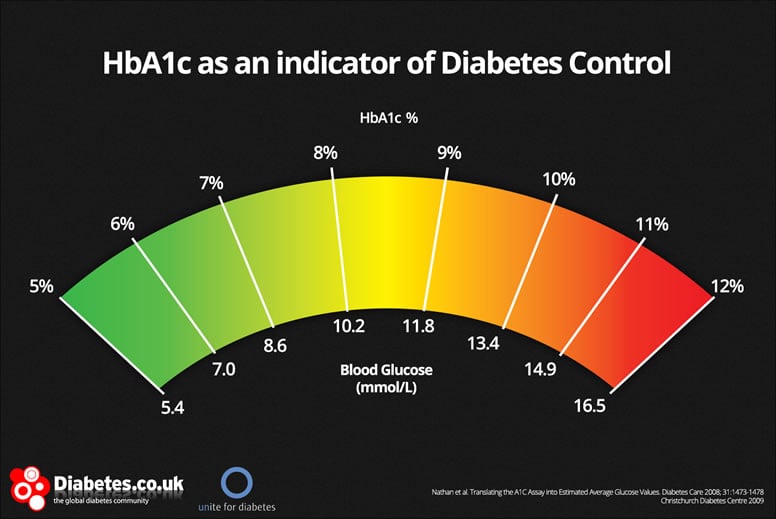Alastair.z70
Member
- Messages
- 6
- Type of diabetes
- Type 2
- Treatment type
- Insulin
I'm sorry I'm still a bit new to all this. For quite a few years I never tested my blood sugar as I was having blood tests every month or so and got out of the habit. I've got a few other health problems and to be honest until the other month when I was told I would need to start taking insulin my diabetes was a very low priority which I now know was a huge mistake.I agree with everything said above, but do want to ask one thing - do your daily meter readings match your HbA1c readings? It will never be an exact match, but they should be in the rough ballpark (this will only work if you take multiple meter readings every day. If you test less frequently, then the comparison will be useless).
This table shows how to translate the different units.

I am not on insulin, so I would always prefer a meter that reads higher rather than lower - because it shows a 'worse case' scenario and motivates me towards better control. On the other hand, if I were using the meter for calculating my insulin doses, I would have different priorities.
So without a blood test at the hospital how else can I find out my hba1c result, though the nurse at my annual review said it was much better than normal without giving me a figure. What is the ideal range for hba1c?
